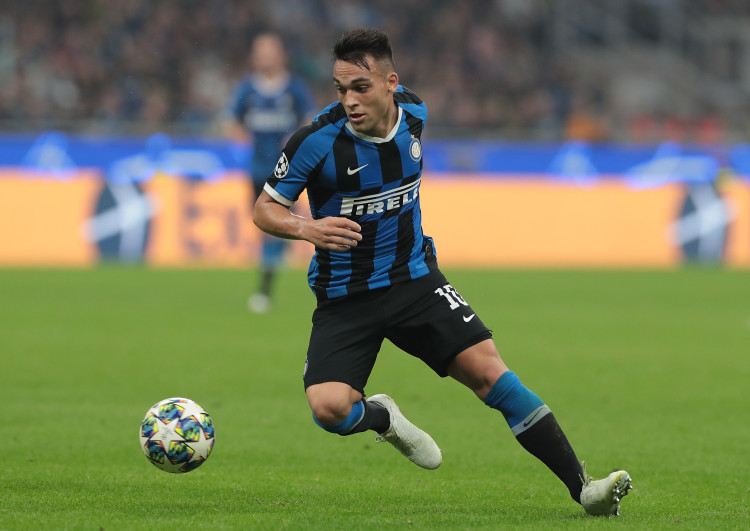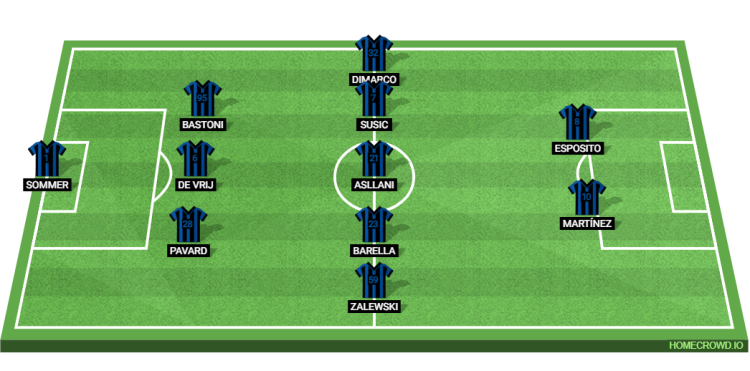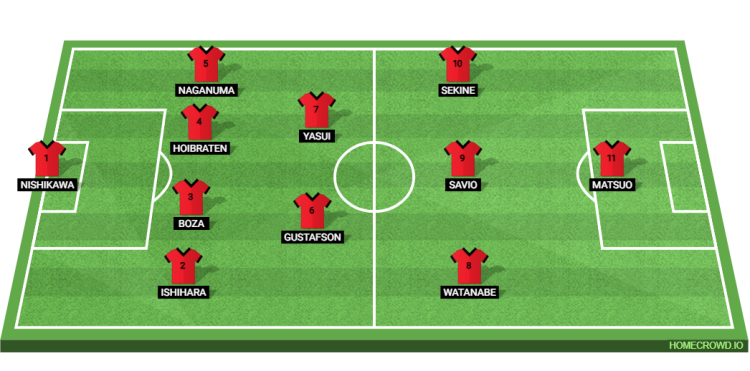
Inter Milan and Urawa Red Diamonds will clash at Seattle’s Lumen Field on Saturday in a high-stakes showdown at the Club World Cup, with both sides still searching for their first win of the tournament. With qualification to the next phase hanging in the balance, neither can afford a slip-up in what is shaping up to be a crucial Group E contest.
Just weeks removed from the emotional fallout of their European final loss and a managerial change, Inter Milan are still trying to find their rhythm. The Nerazzurri opened their Club World Cup campaign with a 1-1 draw against Monterrey, and while they showed flashes of intent, they lacked the cutting edge to seal all three points.
It was veteran defender Sergio Ramos who gave Monterrey the lead, punishing Inter’s lapse in set-piece marking. But Inter’s response was swift, with captain Lautaro Martínez levelling the score before halftime. Despite dominating the second half in terms of chances, eight shots, none converted, new manager Cristian Chivu had to settle for a single point in his first competitive match at the helm.
The former Inter and Romania defender inherits a talented but fatigued squad that endured a draining 2023–24 season, finishing second in both Serie A and the Champions League. Chivu, who previously impressed with a short but efficient spell at Parma and honed his coaching skills in Inter’s youth system, has promised to instil new energy and purpose.
With River Plate looming as their final group opponent, Inter know that anything short of victory against Urawa would put their progression at serious risk. For a club that lifted the Intercontinental Cup twice in the 1960s and boasts a proud global heritage, early elimination would be unthinkable.
By contrast, Urawa Red Diamonds arrived in the U.S. with far less pressure but just as much ambition. After a 3-1 loss to River Plate in their opener, the Japanese side are also on the brink, needing at least a point, and likely more, to avoid a group-stage exit.
Manager Maciej Skorża saw his side struggle through much of the first half against the Argentine giants, but a spirited second-half showing offered some hope. Yusuke Matsuo’s well-taken penalty narrowed the deficit early after the break, though ultimately Urawa lacked the quality in both boxes to stage a comeback.
Domestically, Urawa have been inconsistent, winning just twice in their last seven J1 League matches. Their form reflects a squad in transition, with flashes of potential but a lack of cohesion. Still, their passionate fan base—vocal and vibrant in the opener- remains a vital presence and could help lift the team on another difficult night.
Historically, the odds are firmly against the Red Diamonds. In their two previous Club World Cup meetings with European clubs, they suffered defeats to AC Milan (2007) and Manchester City (2022). Facing an Inter Milan side wounded but motivated, they will need a near-perfect display to break that trend. The Hard Tackle takes a look at how both sides could line up and what tactics they might employ on the day.
Inter Milan continue to battle a string of fitness concerns heading into their second Club World Cup group stage fixture. Hakan Çalhanoğlu, a vital orchestrator in midfield, remains a major doubt due to a thigh injury. He missed the draw with Monterrey and is unlikely to be risked again unless fully recovered, with a return against River Plate more probable. Midfielders Davide Frattesi and wing-back Denzel Dumfries are also sidelined due to muscular issues, though their recovery timelines suggest they may be available for the final group game if Inter advance.
Further back, Piotr Zieliński (calf) and defender Yann Aurel Bisseck (thigh) are not expected to feature in the group stage, as both continue their recovery processes. Up front, Marcus Thuram is still nursing a flexor problem and may not be ready to reclaim his place in the starting lineup. That leaves Sebastiano Esposito, who started alongside Lautaro Martínez in the opener, in contention to retain his role. The departure of Joaquín Correa and Marko Arnautović, coupled with Mehdi Taremi’s ineligibility to travel due to visa issues, limits Inter’s forward options further.
Inter manager Cristian Chivu is expected to stick with his 3-5-2 system, balancing width with midfield control and giving Lautaro Martinez the platform to lead from the front. Yann Sommer will once again start in goal, with a defensive trio comprising Benjamin Pavard on the right, Stefan de Vrij centrally, and Alessandro Bastoni on the left. The experienced back line will aim to tighten up after showing vulnerability in transitions against Monterrey.
In midfield, Nicolo Barella is likely to assume greater creative responsibility in the absence of Çalhanoğlu. He will be joined by Kristjan Asllani, who will anchor the play from deep, and Luka S,ucic who offers verticality and drive in the final third. On the flanks, Nicola Zalewski is expected to operate as the right wing-back, while Federico Dimarco will continue on the left, providing width and delivering crosses into the box.
Up front, Francesco Pio Esposito, the younger of the two Esposito brothers, is tipped to start after showing encouraging movement off the ball in the opening match. He will partner Lautaro Martínez, who remains Inter’s most consistent attacking threat and captain, having already found the net in this tournament.
Probable Lineup (3-5-2): Sommer; Pavard, De Vrij, Bastoni; Zalewski, Barella, Asllani, Sucic, Dimarco; F. P. Esposito, Martinez

Urawa Red Diamonds will once again look to Ryoma Watanabe as their primary attacking threat, with the winger enjoying a productive campaign so far, having scored six goals in 18 appearances across all competitions. Watanabe was lively in the defeat to River Plate and will be key to Urawa’s hopes of breaking down Inter’s structured defence.
Head coach Maciej Skorża will be without the services of Kai Shibato, a seasoned midfield presence and former Japan international, who is sidelined due to injury. His absence limits Urawa’s control and composure in central areas, forcing younger or less experienced players to step up in a crucial game. On a more positive note, experienced playmaker Genki Haraguchi, who has spent several years playing in the Bundesliga with Hertha Berlin, is available and may be deployed off the bench if Urawa need additional creativity or composure in the second half.
Skorża is likely to persist with a 4-2-3-1 formation, emphasising compactness in midfield and pace on the break. Veteran goalkeeper Shusaku Nishikawa will start between the posts, anchoring a back four consisting of Hitokazu Ishihara at right-back, Danilo Boza and Marius Hoibraten as the central defenders, and Yoichi Naganuma operating at left-back.
In the double pivot, Samuel Gustafson and Kaito Yasui will hold the fort, tasked with shielding the defence and disrupting Inter’s rhythm in the middle third. Gustafson, in particular, will be relied upon for his positional discipline and ball-winning ability.
The attacking midfield trio will feature Ryoma Watanabe on the right flank, Matheus Savio in the central playmaking role, and Takahiro Sekine on the left. Watanabe’s direct runs and goal threat will be a constant outlet on the break, while Savio’s role will be to orchestrate quick transitions when Urawa win the ball.
Leading the line will be Yusuke Matsuo, who netted Urawa’s only goal of the tournament so far from the penalty spot against River Plate. As the lone striker, Matsuo will need to be efficient with limited opportunities and make the most of any defensive lapses from Inter.
Probable Lineup (4-2-3-1): Nishikawa; Ishihara, Boza, Hoibraten, Naganuma; Gustafson, Yasui; Watanabe, Savio, Sekine; Matsuo

When Inter Milan take the field against Urawa Red Diamonds on Saturday, all eyes will once again be on Lautaro Martínez, the heartbeat of their attack and the man wearing the captain’s armband. The Argentine striker is coming off yet another vital contribution, having scored the equaliser in Inter’s 1-1 draw with Monterrey, his 31st goal of the calendar year across club and international competitions.
Martínez’s consistency and leadership have become central to Inter’s identity. In a side hit by injuries and transitioning under new coach Cristian Chivu, Lautaro remains the one constant, relentless in movement, composed in finishing, and capable of carrying the attacking burden on his shoulders. His goal against Monterrey was not just a clinical finish; it was also a statement that, even without some of their usual starters, Inter can still rely on their talisman.
Against a Urawa side expected to defend deep and absorb pressure, Lautaro’s positional intelligence and ability to create space will be essential. His link-up play, especially with wing-backs and midfield runners, will be key to unlocking a disciplined back line, and his physicality gives him the edge even in tight contests.
Moreover, the 27-year-old is inching closer to historical significance at Inter. Already among the club’s top scorers in European and international competitions, another goal at the Club World Cup would not only reinforce his place in the squad’s present but also strengthen his growing legacy in the club’s storied past.
If Inter are to move one step closer to the knockout rounds and keep their title hopes alive, Lautaro Martínez will almost certainly be at the centre of it.
This fixture presents a classic contrast: a European heavyweight under pressure to deliver versus an Asian underdog with nothing to lose. Inter Milan have the technical superiority and tactical depth to control proceedings, but they must find sharper execution in front of the goal. Urawa, while capable of short bursts of threat, are likely to struggle with the intensity and quality Inter will bring, especially as the match wears on.